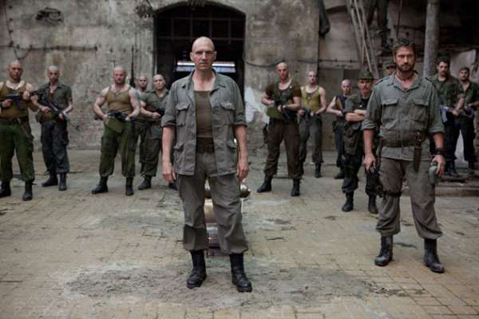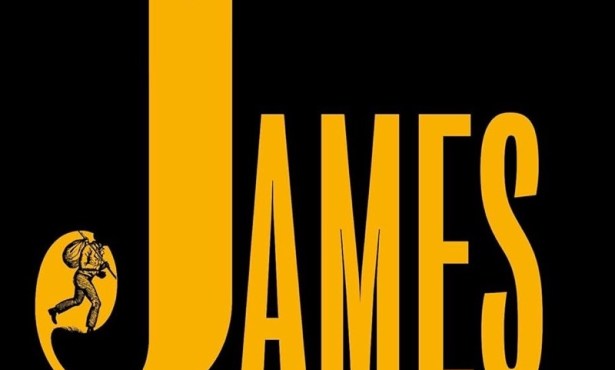Coriolanus
Ralph Fiennes, Jessica Chastain, and Gerard Butler star in a film written by John Logan, based on the play by William Shakespeare, and directed by Fiennes.

In the context of this year’s cinema crop, Coriolanus may apply to the curious double standard of being both one of the freshest and most antiquated films around. For those uninitiated to the conceptual essence of the project, some kind of startling disconnect sensation may hit upon seeing modern-day urban warriors and settings early in the film, and suddenly hearing Ralph Fiennes spewing Shakespearean eloquence. Welcome to Shakespeare gone rogue and contemporary, and impressively so.
Working from a sharp adaptation by John (Gladiator, The Aviator, Hugo) Logan, Fiennes makes this film work wonders in the twin duties as director (his debut as such) and an actor of no small power, volatility, and persuasiveness. In the title role, as a warrior and would-be politician whose pride leads him into banishment, revenge, and potential ruin, Fiennes — mostly with shaved and sometimes bloodied head — commands our attention, and some quiver of fear. First wooing the citizenry, for political ambitions, Coriolanus later lashes out at “the mutable, rank-scented many” before his exile and linking up with his former enemy, Aufidius (Gerard Butler).
At one point, deep into his self-destructive rampage, Coriolanus’s defender describes him as having “grown from a man to a dragon … There’s no more mercy in him than there is milk in a male tiger.” Tender home fires burn and smolder with his wife (Jessica Chastain), young son, and mother (Vanessa Redgrave in sturdy form), the wise matriarch with the power to resolve male turf wars with reasoning and demystification.
Shot mostly in Serbia and Montenegro, the film transposes its theme of civil struggle, ethnic unrest, and political corruption in Rome to a gritty landscape we still associate with the violent upheaval of the Balkans in the ’90s. By so doing, the implicit point is made that warring and deadly power playing is an ancient practice continuing into the indefinite future of the human experiment. Coriolanus is a fascinating and, by filmic standards, unusual piece of work. Whereas Shakespearean shifts of historical context are more common in theater and in opera, they happen rarely in cinema. That, no doubt, adds to the peculiar mesh of sensations in watching in this literate, tragic, torn-from-recent-headlines aggregate of a film.



